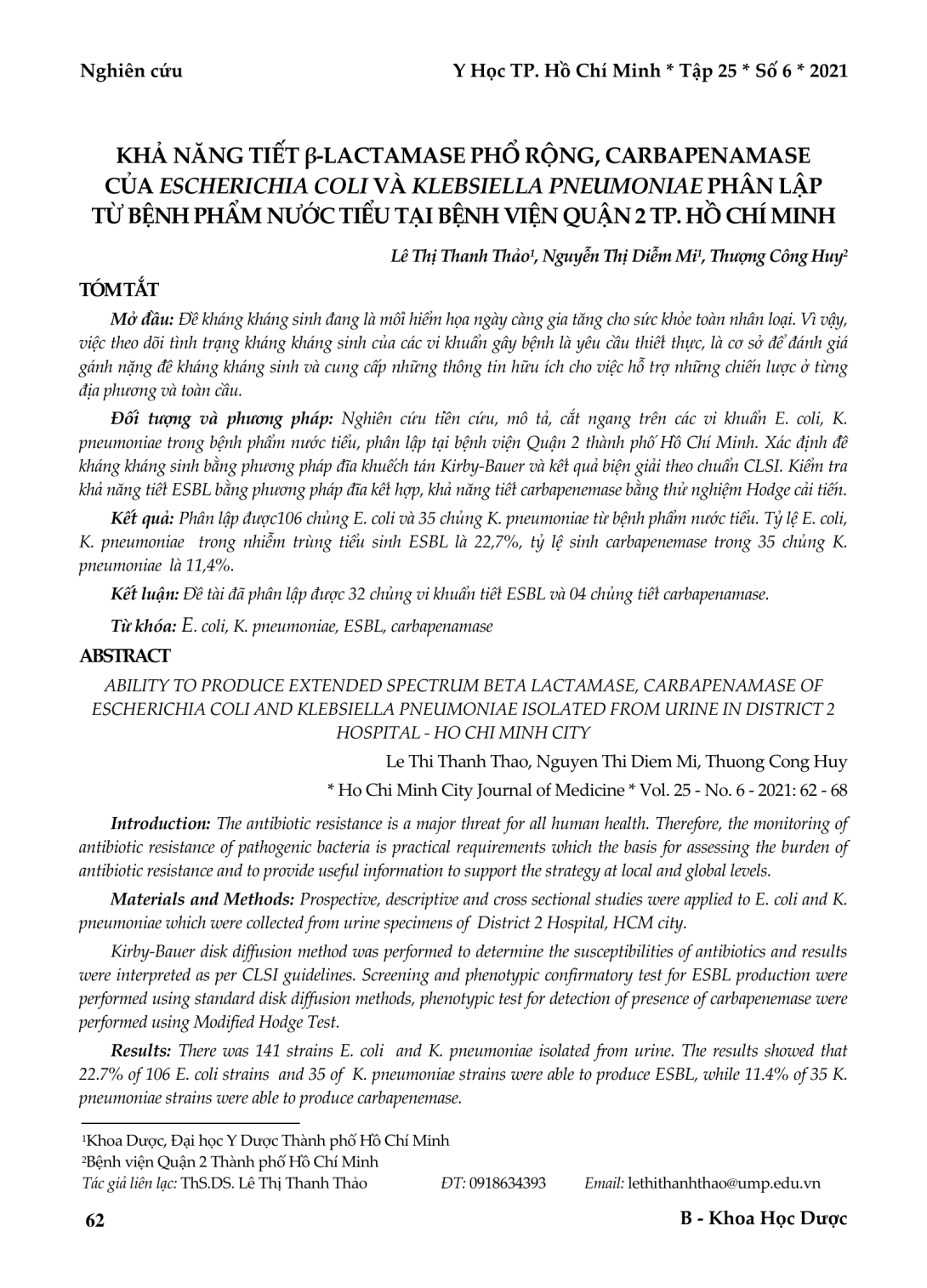
Đề kháng kháng sinh đang là mối hiểm họa ngày càng gia tăng cho sức khỏe toàn nhân loại. Vì vậy, việc theo dõi tình trạng kháng kháng sinh của các vi khuẩn gây bệnh là yêu cầu thiết thực, là cơ sở để đánh giá gánh nặng đề kháng kháng sinh và cung cấp những thông tin hữu ích cho việc hỗ trợ những chiến lược ở từng địa phương và toàn cầu. Đối tượng và phương pháp: Nghiên cứu tiền cứu, mô tả, cắt ngang trên các vi khuẩn E. coli, K. pneumoniae trong bệnh phẩm nước tiểu, phân lập tại bệnh viện Quận 2 thành phố Hồ Chí Minh. Xác định đề kháng kháng sinh bằng phương pháp đĩa khuếch tán Kirby-Bauer và kết quả biện giải theo chuẩn CLSI. Kiểm tra khả năng tiết ESBL bằng phương pháp đĩa kết hợp, khả năng tiết carbapenemase bằng thử nghiệm Hodge cải tiến. Kết quả: Phân lập được106 chủng E. coli và 35 chủng K. pneumoniae từ bệnh phẩm nước tiểu. Tỷ lệ E. coli, K. pneumoniae trong nhiễm trùng tiểu sinh ESBL là 22,7%, tỷ lệ sinh carbapenemase trong 35 chủng K. pneumoniae là 11,4%. Kết luận: Đề tài đã phân lập được 32 chủng vi khuẩn tiết ESBL và 04 chủng tiết carbapenamase.
The antibiotic resistance is a major threat for all human health. Therefore, the monitoring of antibiotic resistance of pathogenic bacteria is practical requirements which the basis for assessing the burden of antibiotic resistance and to provide useful information to support the strategy at local and global levels. Materials and Methods: Prospective, descriptive and cross sectional studies were applied to E. coli and K. pneumoniae which were collected from urine specimens of District 2 Hospital, HCM city. Kirby-Bauer disk diffusion method was performed to determine the susceptibilities of antibiotics and results were interpreted as per CLSI guidelines. Screening and phenotypic confirmatory test for ESBL production were performed using standard disk diffusion methods, phenotypic test for detection of presence of carbapenemase were performed using Modified Hodge Test. Results: There was 141 strains E. coli and K. pneumoniae isolated from urine. The results showed that 22.7% of 106 E. coli strains and 35 of K. pneumoniae strains were able to produce ESBL, while 11.4% of 35 K. pneumoniae strains were able to produce carbapenemase. Conclusion: There was 32 strains can produce ESBL and 04 strains can produce carbapenamase isolated from unine.
- Đăng nhập để gửi ý kiến
